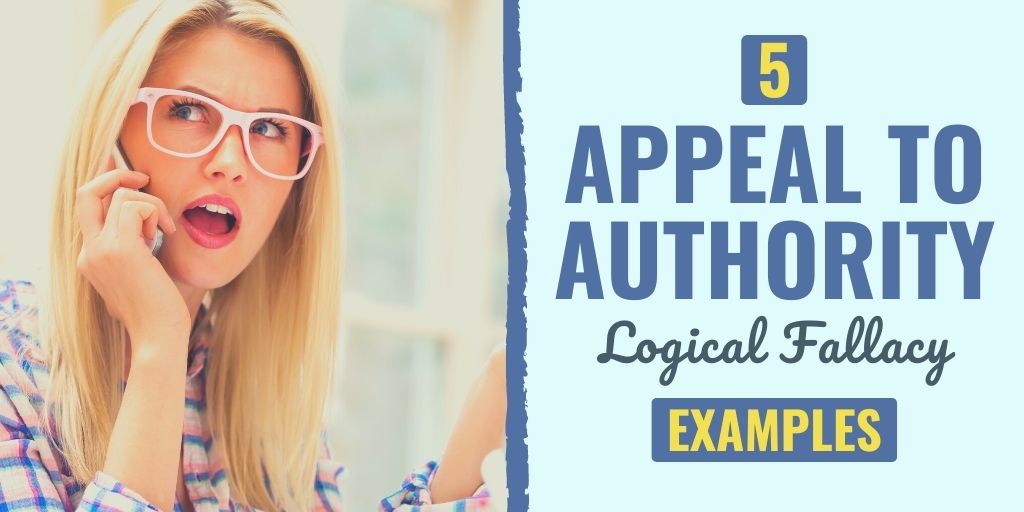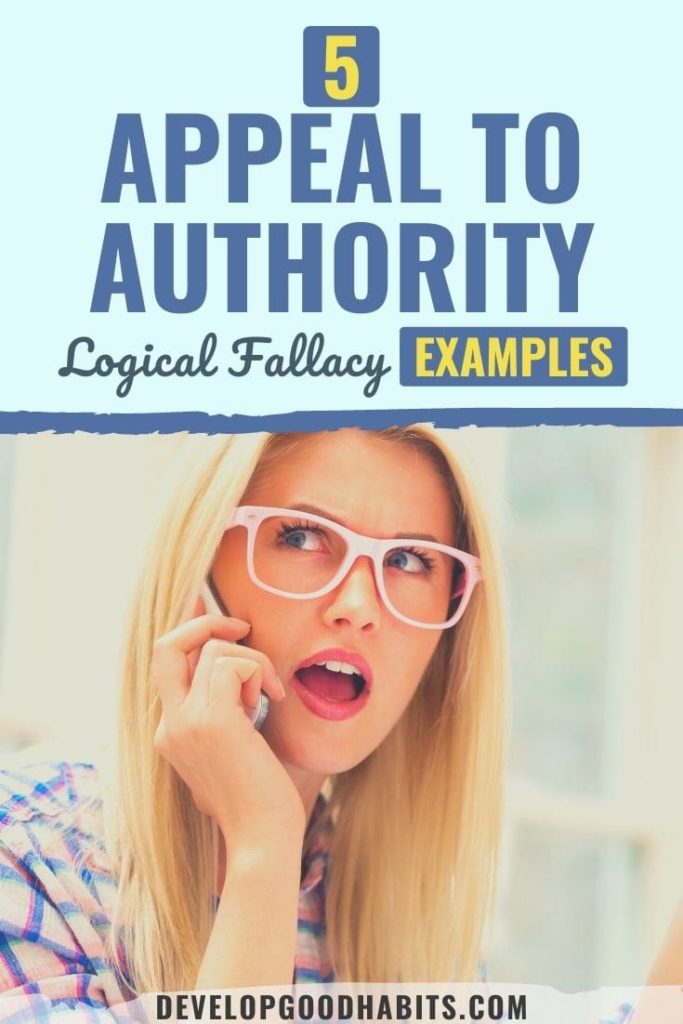There might be affiliate links on this page, which means we get a small commission of anything you buy. As an Amazon Associate we earn from qualifying purchases. Please do your own research before making any online purchase.
Do you remember when “Because my mom said so” was a valid argument? Back in the days when our parents were the ultimate authority on all topics and if a grownup said it was true, there were no further questions.
But, with age and experience, this argument lost its power as we recognized that our parents aren’t actually experts on everything.
Children often look up to adults with a blind sense of trust and consider them to have enough credibility that anyone would need to make a solid claim, regardless of the topic. Did you ask a series of logistical questions when your parents gave you a gift from Santa/ the Easter bunny/ the tooth fairy? Probably not, because you accepted the background story to be true without questioning the authority of your parents.
When people use the appeal to authority as a logical fallacy in everyday life, it’s similar to that childhood claim of saying something is true because one’s parents said so. In this article, we are going to look at how people appeal to authorities to support an otherwise unfounded argument. But before taking a look at five examples of this faulty logic, let’s define it in a bit more detail.
What Is the Appeal to Authority Fallacy?
The appeal to authority fallacy happens when someone makes a claim on the basis of an authority figure believing the claim to be true. Rather than turning toward empirical evidence, the argument relies solely on the authority’s credibility.
This informal fallacy falls under the sub-category of fallacies of relevance, which means the evidence isn’t relevant to the claim, and therefore it doesn’t offer sufficient evidence for you to believe the conclusion is true. Furthermore, this is a genetic fallacy, which means the truth of the claim is determined by its source instead of its merits.
This isn’t to say that experts’ claims should be dismissed. It's valid to accept the opinion or statements of experts who are unbiased and qualified to speak on the subject at hand. After all, if your doctor gives you advice, you will probably believe him without running home to do some online research of your own.
If you’re trying to make a claim about a subject in which you’re not an expert, having someone back you up who has a demonstrated level of knowledge or understanding on the subject may help solidify your claim. However, because experts are human and humans make mistakes, one’s authority status ultimately doesn’t have an impact on the actual truth of a claim, which makes this type of argument faulty. In terms of logic, even experts can be wrong, which means their opinions can really only suggest that something is probably true, and can’t prove it’s definitely accurate. So, in addition to relying on the credibility of an authority, you must also present evidence to prove a point.
When it comes to accepting one’s authority, consider whether or not the topic at hand involves empirical evidence, and whether or not it’s possible for the claims to be verified by fact-checking. Conducting verification could be time consuming, which is one reason why this type of appeal is often made in the first place.
Ultimately, using anecdotes from someone with any level of expertise can’t replace the use of actual research to stand behind a claim. This type of testimony is neither an argument nor a fact.
Here is what this logical fallacy looks like:
“Authority” A asserts that X is true. Therefore, X is true.
You can see why this is an invalid argument for several reasons, even though it may sound convincing on the surface. First, it assumes that Authority A knows what they're talking about (they're an expert on X). It also assumes that Authority A has a non-biased opinion (there is agreement among experts regarding the topic at hand). And finally, this statement assumes that Authority A is telling the truth.
How to Avoid Making this Fallacious Argument
Be mindful of your tendency to fall victim to the confirmation bias. Rather than relying on some type of authority figure to confirm a fact, do some research to look for scientific findings. Rather than believing testimony alone, look for facts and evidence to prove a point.
Also, consider the level of authority of the person who is being referenced. What makes this person an expert and exactly how far does their expertise go? Can they make an ultimate claim? Or is this simply a celebrity or well-known person who actually doesn't know much more about the topic at hand than anyone else would? Essentially, how reliable is the person who is being cited?
Let’s look at some examples.
5 Appeal to Authority Logical Fallacy Examples
1. Celebrity Opinions or Endorsements
Celebrity endorsements drive the sales of a variety of products. With the wide consumer reach that social media can span, a celebrity endorsement on social media can influence the entire social media following of a celebrity. This offers company direct access to hundreds of thousands of consumers, in addition to associating themselves with the credibility being followed.
Furthermore, when you see a celebrity authentically using a product on social media, sales can skyrocket. This is because celebrities are familiar faces–and often trusted role models–that we associate with specific characteristics. People often feel like they know celebrities on a personal level.
When it comes to marketing tactics, being able to associate a product with the stamp of approval from a celebrity is pretty powerful. However, in these cases, the authorities who are making the claim are irrelevant to the actual value of the product, which makes the logic flawed.
This is important for marketers to keep in mind because studies show that rates of consumer purchase intentions decrease when a mismatch is perceived between the chosen celebrity and the product or brand. This means that if you can spot the faulty logic, you’re not likely to fall for the advertisement.
2. Medical Advice
A lot of people have opinions about health-related issues, and not all of them know what they’re talking about. If you’re not a medical professional, it’s best to seek an expert’s advice about your health concerns as they arise rather than taking the best corrective action you can come up with yourself. When you see a doctor, most of the time this relevant expert is going to treat you according to scientific consensus – meaning, the collective belief of the scientists in the medical field.
Let’s say someone says, “I know your doctor is suggesting this treatment for your condition, but I know an herbal medicine specialist who says all you really need is to change your diet and take some B12.”
You would need to consider the specific field of medicine that your doctor has expertise in and if you believe your doctor’s opinion is reliable, then weigh that against your other options. In this case, it’s much more likely that your chosen doctor has more specific knowledge on yoru condition than this herbal specialist who doesn’t know you.
3. Religion
According to scriptures, Saint Augustine claimed that if you aren't Catholic, you won't go to heaven. Some take this statement very seriously and believe it to be true because of its source. But if you ask some other religious experts, they may not agree with this, especially if they are not of the Catholic faith. There is no research or evidence behind this claim, so stating it as a fact because it was said by a religious authority is a fallacious argument.
Also, it’s important to address that Saint Augustine was never able to prove that heaven and hell really exist. Because no one has proven this, we cannot accept a claim about salvation (or damnation) in any definitive way.
4. News Authority
There was a meme going around the internet a few years ago with a picture of Abraham Lincoln that read, “Not everything you read on the internet is true” — Abraham Lincoln
This meme was poking fun at those who fall for everything they read online or see on the news. Obviously, Abe Lincoln cannot be quoted as saying this because the internet wasn't around when he was alive. But, he is an authority figure who many continue to look up to to this day. However, his authority and expertise is irrelevant to the internet age.

So, if someone says, “Scientists found a cure for Alzheimer's, I saw it on the local news!” I would pause before getting too excited. It's likely that your local news doesn't specialize in Alzheimer's research, so until an article addressing this statement is published in the Journal of the American Medical Association, I would be skeptical as to whether or not the news station was trying to get some ratings by spinning a story with such a headline.
5. General Consensus
When someone tries to make a claim based on a minority opinion, it is a faulty argument. For example, let’s say someone claims that climate change isn’t a real thing because one climate change researcher says so. While this testimony may be from an authority, the argument doesn’t offer strong inductive support for the claim because 97% of scientists who study the climate agree that climate change is occurring.
So if the vast majority of climate scientists claim climate change is real, it’s unsound to try to argue that the 3% of scientists in the minority have a more accurate testimony.
Learn More About Other Logical Fallacies
- 5 Appeal to Nature Fallacy Examples in Media and Life
- 6 Outcome Bias Examples That Can Negatively Impact Your Decisions
- 7 Self-Serving Bias Examples You See Throughout Life
- 7 Omission Bias Examples That Negatively Impact Your Life
- 6 Authority Bias Examples That Might Impact Your Decisions
- 5 Burden of Proof Fallacy Examples
- 5 Appeal to Tradition Fallacy Examples in Life
- 7 False Cause Fallacy Examples
- 7 Appeal to Ignorance Fallacy Examples
- 7 Appeal to Common Sense Logical Fallacy Examples
- 5 Post Hoc Fallacy Examples (and How to Respond to This Argument)
- Gambler’s Fallacy: 5 Examples and How to Avoid It
- 5 Appeal to Anger Fallacy Examples Throughout Life
- 7 Halo Effect Bias Examples in Your Daily Life
- 7 Poisoning the Well Examples Throughout Your Life
- 7 Survivorship Bias Examples You See in the Real World
- 7 Dunning Kruger Effect Examples in Your Life
- 7 Either Or (“False Dilemma”) Fallacy Examples in Real Life
- 5 Cui Bono Fallacy Examples to Find Out “Who Will Benefit”
- 6 Anchoring Bias Examples That Impact Your Decisions
- 7 Virtue Signaling Examples in Everyday Life
- 7 Cherry Picking Fallacy Examples for When People Ignore Evidence
- 9 Circular Reasoning Examples (or “Begging the Question”) in Everyday Life
- 9 Appeal to Emotion Logical Fallacy Examples
- 9 Appeal to Pity Fallacy (“Ad Misericordiam”) Examples in Everyday Life
- 9 Loaded Question Fallacy Examples in Life and Media
- 9 Confirmation Bias Fallacy Examples In Everyday Life
- 9 Bandwagon Fallacy Examples to Prevent Poor Decisions
- 5 Red Herring Fallacy Examples to Fight Irrelevant Information
- 9 Middle Ground Fallacy Examples to Spot During an Argument
- 5 False Equivalence Examples to Know Before Your Next Argument
- 7 Hasty Generalization Fallacy Examples & How to Respond to Them
- 6 Straw Man Fallacy Examples & How You Can Respond
- 6 False Dichotomy Examples & How to Counter Them
Final Thoughts on Appeal to Authority Logical Fallacy
It’s ok to look up to authority figures if you’re looking for expert opinions. However, without facts or other sound research, their claims can only be taken as that–an opinion. When an everyday person makes a claim and says that an authority figure believes it to be true, but offers no other evidence, I would be a bit more wary about the truth.
Always remember to look for empirical data when trying to uncover the truth of a matter and don’t just take someone’s word for it.

Connie Mathers is a professional editor and freelance writer. She holds a Bachelor's Degree in Marketing and a Master’s Degree in Social Work. When she is not writing, Connie is either spending time with her daughter and two dogs, running, or working at her full-time job as a social worker in Richmond, VA.


